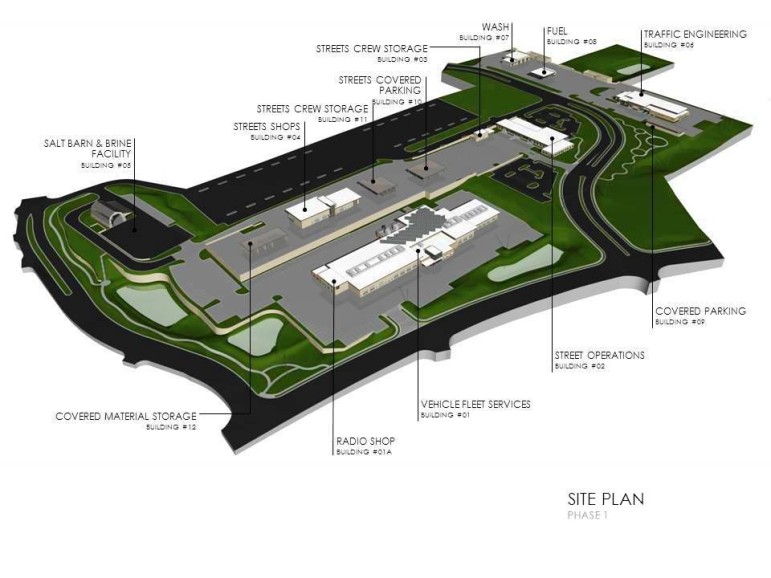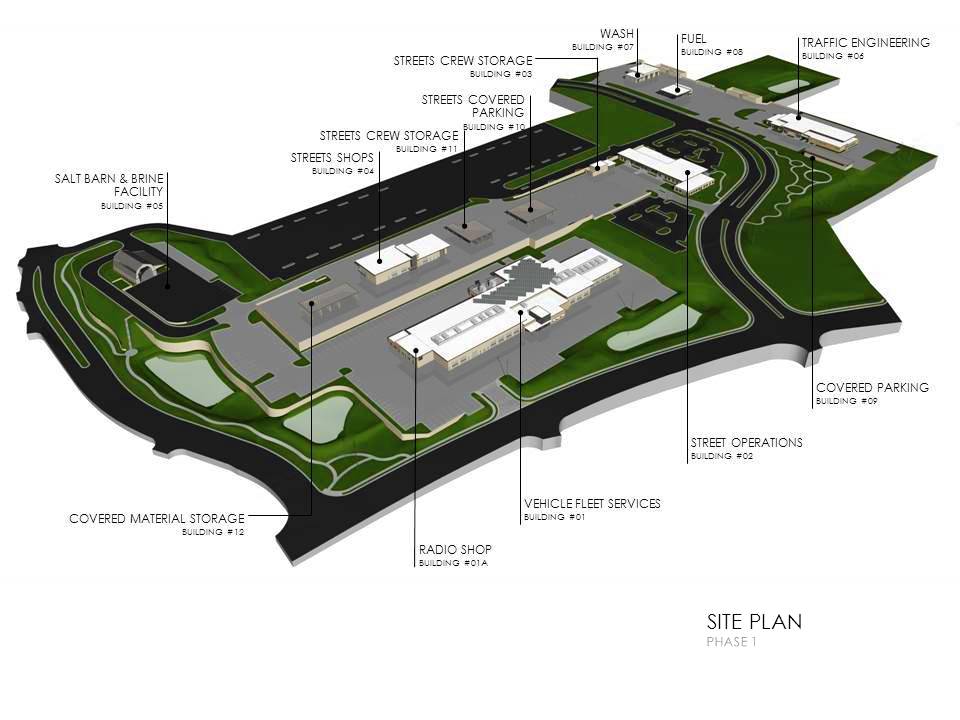A new facility to house the city’s street maintenance, traffic engineering and vehicle fleet services will soon be constructed near downtown.
City Councilors Tuesday approved the use of limited obligation bonds not exceeding $100 million to pay for the Downtown Remote Operations Facility. The complete project cost is estimated to be $55 million.
The Downtown Operations Facility will be built on 43 acres of land east of Interstate 440, between Capital Boulevard and Raleigh Boulevard. General Contractors Brasfield & Gorrie have proposed a guaranteed maximum price estimate of $20.2 million to complete the first phase of construction, which includes site work, concrete and asphalt paving, retaining walls, concrete panels, waterproofing, and fire protection.

The facility will house components of the City Street Maintenance, Traffic Engineering, and Vehicle Fleet Services staffs. It will become the main site for street maintenance services, such as pothole repairs and repaving. The city’s Parks and Recreation Facility Center will also be housed at the downtown site.
This project is part of a broader program to build several new operations facilities throughout Raleigh.
There are plans for four different sites: Grove Solid Waste Services Operations Center in East Raleigh, Northeast Remote Operations Facility near Durant Nature Park, the Downtown Remote Operations Facility between Capital and Raleigh Boulevards and a site on Mt. Herman Road.
“The city of Raleigh has grown so much over the last 15 years, our maintenance vehicles have to travel quite far to complete their services,” said Assistant City Manager Daniel Howe.
Construction of these new facilities will allow the departments to move from current inadequate facilities at Peace Street and Capital Boulevard.
“The upgraded and expanded facilities will provide more efficient utilization of city resources and quicker response times, thus providing enhanced and more efficient service to the citizens of Raleigh,” said Projects Administrator Richard Kelly.
In a brief discussion Tuesday, Councilor John Odom suggested the use of interlocal funds to help pay for the project. Interlocal funds are collected through county food and beverage taxes.
Odom commented that the city should “get the right funds to use for capital improvement. That is what they are there for.”
“We need to realize that this is only Phase 1,” Odom said.
However, Kelly said so far, the project is financially on track.
“We are pretty close to target,” Kelly said.
Further discussion on the Downtown Remote Operations Facility will continue at the Aug. 6 Council meeting.
